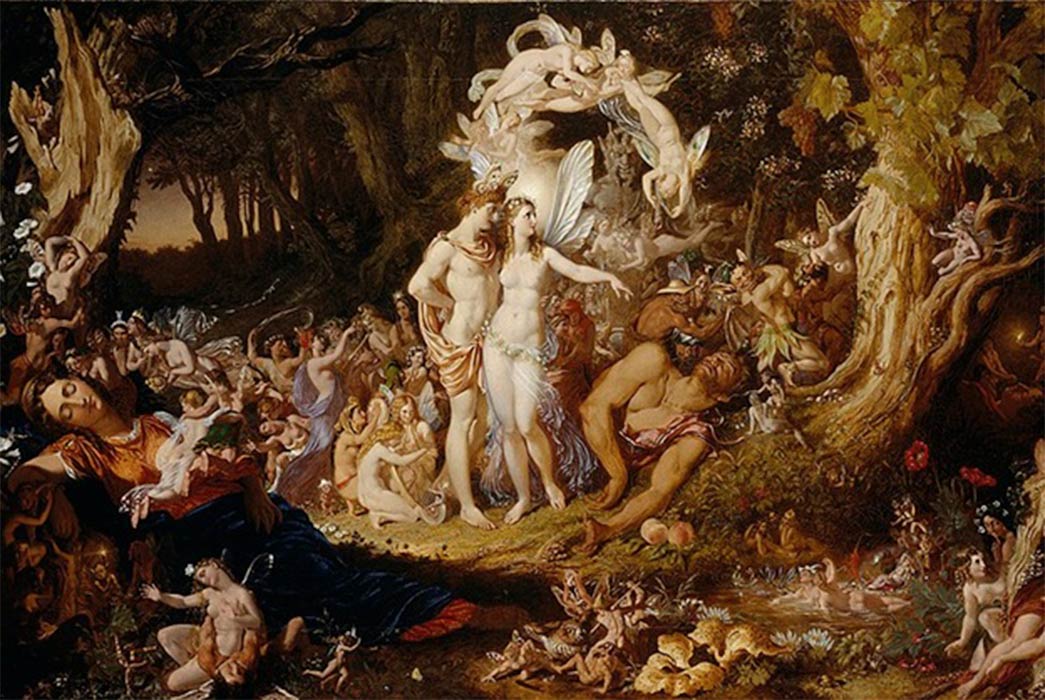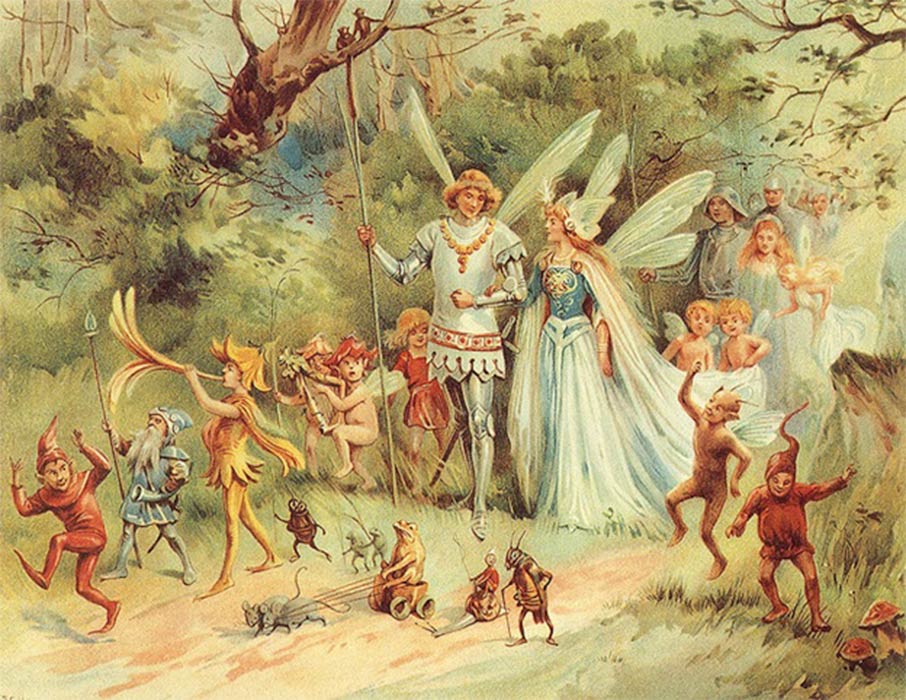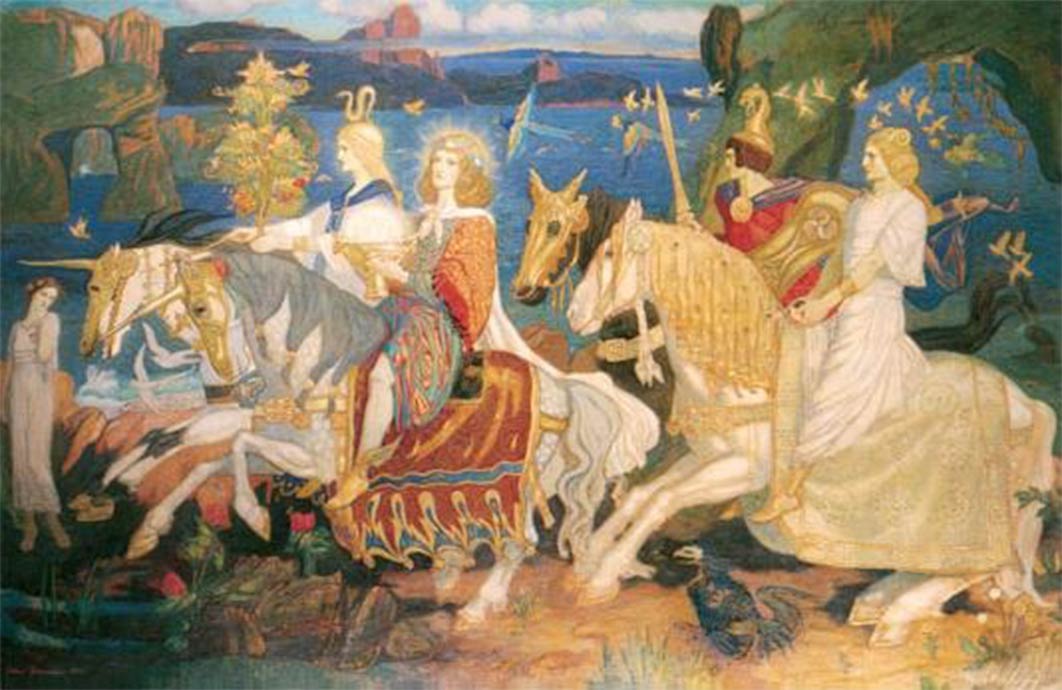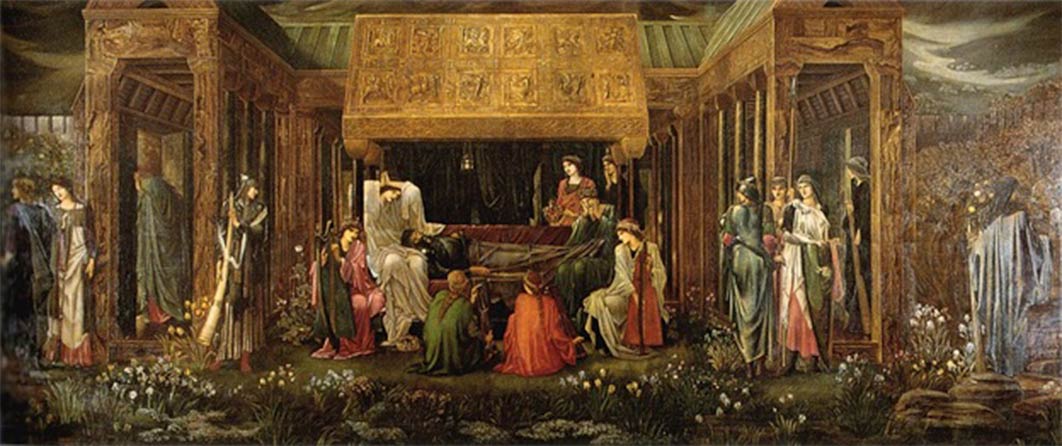
Legacies of Otherworldly Celtic Faerie Kings
The Fairy Queen is a famous mythological figure featuring in Irish and British folklore for at least 1000 years, who after Shakespeare's influence, was often named Titania or Mab. In Irish folklore, the last High Queen of the Daoine Sidhe was Una and in the ballad tradition of Northern England and Lowland Scotland, she was called the Queen of Elphame. While so much has been written about Fairy Queens, the opposite is the case for their supernatural partners, Fairy Kings.

Fairy King and Queen by an unknown artist (1910). (Public Domain)
Hierarchy of Fairy Royalty
In British and Irish fairy lore, fairy royalty is aligned with a hierarchy, and within this peerage the magic of fairy princes and princesses is subordinate to the supreme magic of the ‘Fairy Queen’, but she is powerless without the love of her Fairy King. Together this fairy monarchy not only rules over subjects in the fairy realm, but they also interact with the fate and destiny of humans in their world, as readily as the wind, rain and frost. Today, the Fairy Queen and King have integral parts in a long list of mythological components in Celtic fairy-lore. However, in Scotland, such beliefs were so convincing that the Fairy King and Queen were recognized by their official titles in ancient law, begging the questions: Who exactly was the Celtic Fairy King and what role did he play within ancient culture?

The Tuatha Dé Danann in John Duncan's Riders of the Sidhe. (1911) (Public Domain)
Oberon And King Arthur
Perhaps the most famous British Fairy King, and certainly the most archetypal, is Shakespeare’s Oberon, the star of A Midsummer Night's Dream, in which he is King of the Fairies and spouse of Titania, Queen of the Fairies. In the Medieval French romance Huon of Bordeaux, the French name for Oberon is Auberon and according to mythologist Carol Rose in her 1996 book, "M". Spirits, Fairies, Leprechauns and Goblins: An Encyclopedia, it is an “affectionate diminutive form of Aubert, from the Frankish/ Germanic Alberic, meaning elf rule, or King of the Elves.”
If Oberon is not the most famous king of the British fairies, then this title most certainly goes to the legendary King Arthur. According to legend, during the Dark Ages Arthur ruled over a Round Table of knights. After he was mortally wounded by Mordred, the ‘fay maidens’ Morgan and Nimue spirited him away to another realm, to heal him. One of the earliest chroniclers, Layamon, in Brut (ca. 1190 - 1215 AD), recorded: “The British believe yet that he [Arthur] is alive, dwelling in Avalon with the fairest of all the elves”.

Last Sleep of Arthur in Avalon by Edward Burne-Jones (1881) (Public Domain)




